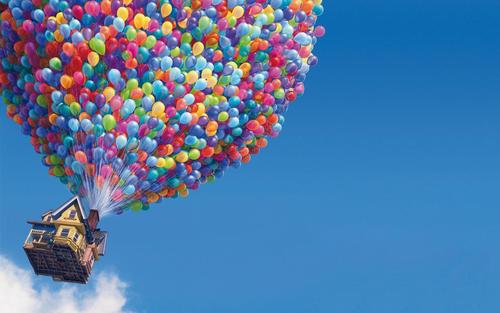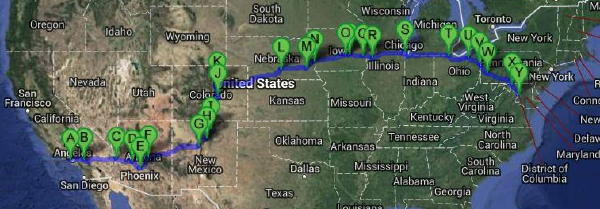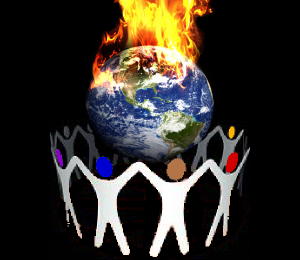I recently came home from Free Cascadia Witch Camp (a recent renaming/rebirth from "Free Activist Witch Camp") and friends online are asking me to write about it. It was a week long and very intense and multi-dimensional, so it's difficult to know where to start. But within about a minute of my talking about it with one housemate, she said, "So, life-changing hunh?" I hadn't thought about it in those terms, but it was among the most impactful events I've participated in - and I've had quite a number of formal and informal experiences which have affected me dramatically. What I told her is that it is potentially life changing, if I follow through on any/all of several avenues which opened up to me as a result of going.
The three biggest opportunities that I see have to do with music, having a spiritual "home" practice and community, and my quest to more solidly establish my basic trust in the world. Today I will write about music. If in the future I feel moved to write more I may dig into the other two, or any of a dozen or more other stories I could tell.
I have loved music as long as I can remember. I'm the kind of person who will hum along or start making harmonies with music I'm hearing, even when it's my first listen. In the school I went to from 5th to 8th grade, everyone in the class was in chorus together once a week, and I played piano and other instruments a bit, and was in musicals and choral groups on and off through high school, into college and a bit after. In the 20+ years since, I have done almost nothing formally with making music and very little even informally, despite the occasional fantasy about ditching everything else and diving into it fully.
On the first day of camp, several "paths" were offered - these are generally led by two facilitators for a few hours each day, and are for most people the core of their camp experience, at least as far as what they are there to learn or deepen into as a witch. I certainly didn't consider myself a witch before camp, and even now it seems a pretty unlikely term to apply to myself. My spiritual path has been long and twisted, and remains strongly influenced by an atheist upbringing and a great respect for science. I am often turned off by stuff that seems too new-agey or woo-woo to me, and this was one reason I was hesitant about going to camp (I've known about it for four years, and pointed close friends to it and only just went myself for the first time). But I definitely wanted to give it a chance, and now that I was there the question was which path to take?
An obvious possibility was an Elementals path, which would have given me a grounding in how rituals work, the five directions/elements (these witches are primarily in the Reclaiming tradition, which adds center/mystery to the more usual north/south/east/west included in many pagan and indigenous spiritual traditions). This year they were combining it with a focus on self-care, without which it wouldn't have had much of a draw for me, but the last few years have been a painful process of the universe repeatedly informing me that I need to attend to myself more fully, and that gave it a real gut pull.
Then a Music Path was announced and the pull to that was immediate and clear, which is probably unsurprising given what I wrote above. After learning some more details about these two options I ended up going with music. One of the plusses with that was that I imagined - correctly as it turned out - that it would be a good way for me to sidle up to the ritual and magic at camp, without triggering the parts of me that might judge all this as nonsense. Music is central to many if not most rituals, and I have no problem acknowledging the power in making music with people, especially the sort that can emerge in improvisation or in building to a crescendo together, which were both common at camp. Further, the Music Path seemed like an opportunity to deepen my relationship with my birth mother, who died when I was two years old. I have been tending this relationship in recent months, and music was a very significant part of her life.
Every day we began with an exercise to ground ourselves, followed by a meditation and a deep listening exercise. I especially loved a deep listening one morning to an instrument - in my case a pair of wooden blocks. I rubbed them together and listened to the soft sound they made, hit them together, etc. It surprised me that it took me so long to notice that they made two separate tones (they were different lengths), and delighted me to discover that these tones were also present in the quiet rubbing. Everything has a natural music to it.
One thing we did several times was what the facilitators called a "round robin," going around the circle and adding one person after another, each adding a simple sound with an instrument or their voice. Once the fifteen or so of us had built this multi-layered sound system we would usually slide into improvisation, changing our sound, choosing a new instrument, playing with the volume, sometimes coming to a very natural-feeling crescendo and/or a quiet close.
The first day we were split into five groups to come up with a ritual to invoke one of the five elements for the evening ritual. My group was to bring in fire. One person had a song, we came up with striking rocks against each other to evoke fire-starting - and of course add a percussive element to the music - and again it was as I expected a great low-key way for me to enter into the witchy stuff :-). Every evening at camp after dinner there was a ritual, usually of the whole camp together. Some nights I didn't connect with it so much, but others I joined fully in the musical aspect and felt very much a part of it.
Mostly now I am appreciating the daily musical practice at camp, and the opportunity to keep this going in my life. On the last full day, the facilitators invited us to make a pledge about how we would deepen our connection to music after camp. Out loud, I made a to-my-mind milquetoast pledge to share songs from camp with my more musical housemates, and invite them at least once a week to make music with me. What I had in mind, and finally shared during goodbyes with a couple of people from my path, was a pledge to sing to my mother each morning first thing when I wake up. So far I have kept this up. It enlivens and affects me, both in keeping her in my consciousness, and in putting me in the musical groove - I find myself singing throughout the day much more than I usually do.
So, thanks witch camp, and witch campers! If all I get out of the past week is to continue with music in this way it will be more than worth the time and energy I have put into it. And as I've said there are several other major invitations from camp which I may take up.


